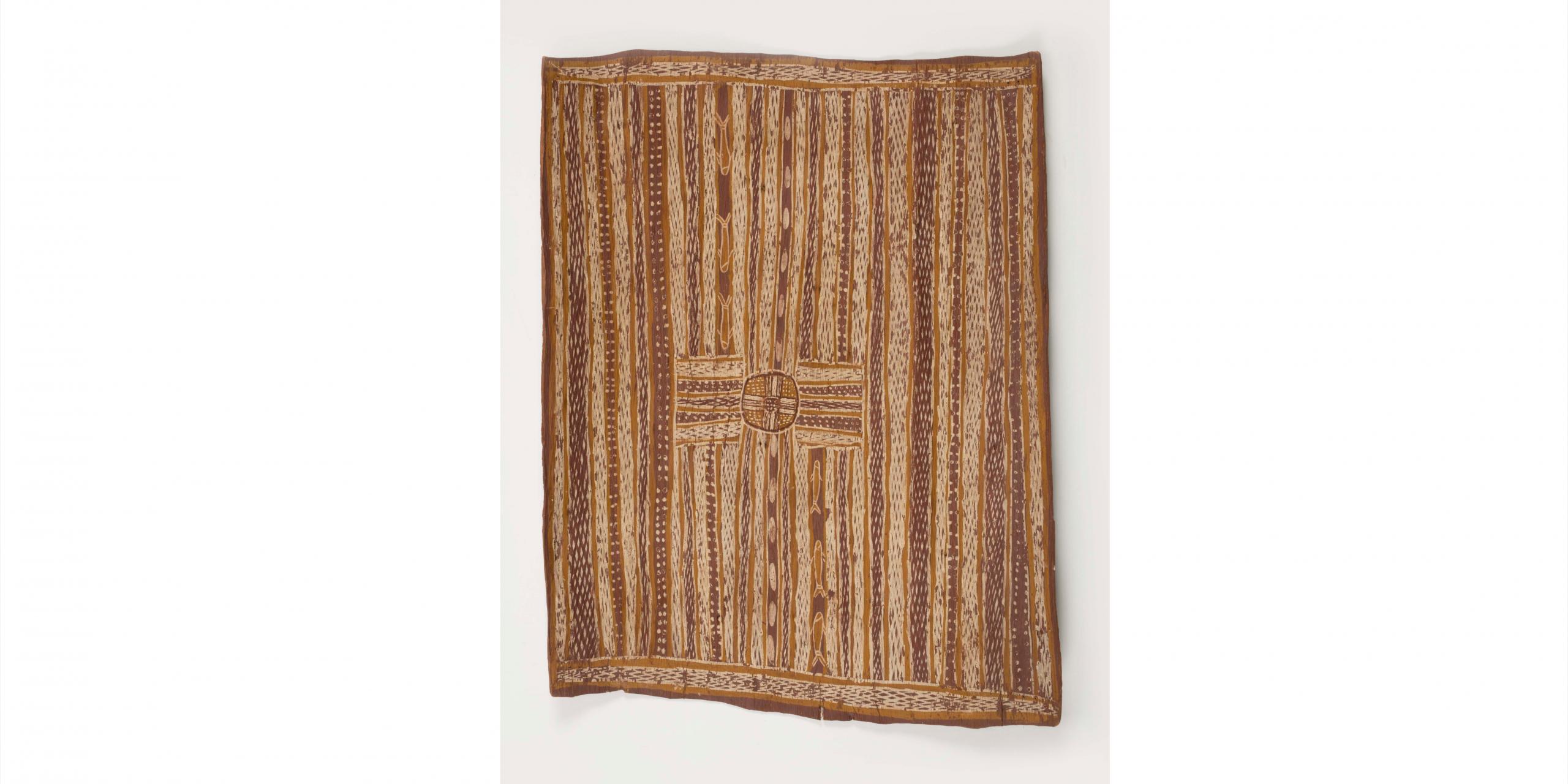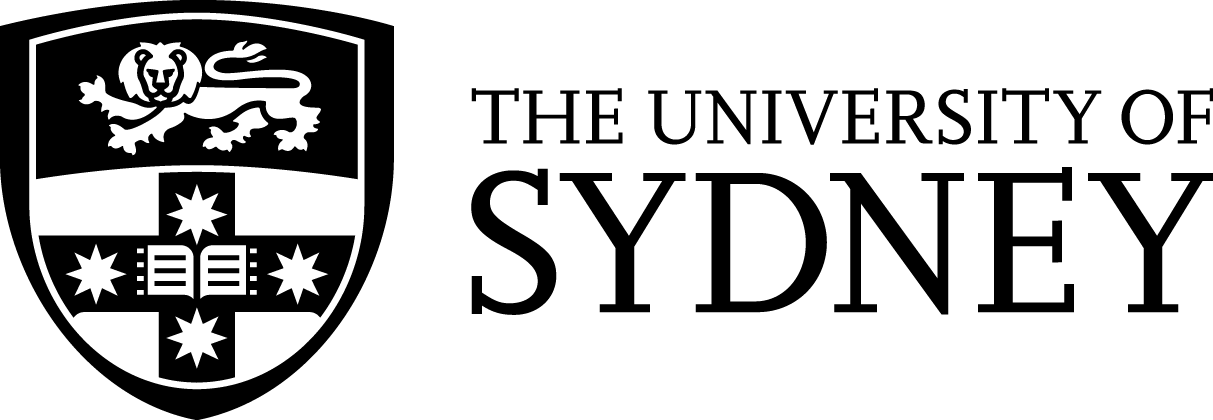Djalkiri: Histories of Indigenous Linework

The first event in the 2021 Linework series, which took place on 18 March 2021.
Image: Mawalan Marika, Rirratjiŋu clan, Dhuwa moiety, Djaŋ’kawu, 1947, ochres on bark, 64 x 48 cm. Collected at Yirrkala, R & C Berndt 1946–47, transferred from the Department of Anthropology 1974, Macleay Collections, ETP2012.
This conversation reflected on the histories of making, collecting and curating Indigenous art in Australia, taking as its point of departure the ground-breaking exhibition of Yolŋu art, “Gululu dhuwala djalkiri”, on view now at the Chau Chak Wing Museum in Sydney. The conversation included curators Djon Mundine and Bernice Murphy, alongside Chau Chak Wing Museum curators Matt Poll and Rebecca Conway. The scholar and curator Gerald McMaster joined us from Canada, placing the conversation in the context of global Indigenous studies and projects.
About
Gululu dhuwala djalkiri | Welcome to the Yolŋu Foundations
This exhibition is on view until August 2021 at the Chau Chak Wing Museum, Sydney, and contains 350 paintings and sculptures by more than 20 Yolŋu clan groups and 100 artists. You can learn more about the exhibition here: https://www.sydney.edu.au/museum/whats-on/exhibitions/gululu-dhuwala-djalkiri.html
Stephen Gilchrist belongs to the Yamatji people of the Inggarda language group of northwest Western Australia and is Lecturer of Indigenous Art at the University of Sydney. He is a writer and curator who has worked with the Indigenous Australian collections of the National Gallery of Australia, Canberra (2003-2005), the British Museum, London (2008), the National Gallery of Victoria, Melbourne (2005-2010) and the Hood Museum of Art, Dartmouth College (2011-2013). Stephen has curated numerous exhibitions in Australia and the United States and has written extensively on Indigenous art from Australia. He has taught Indigenous art in Australia and in the United States. From 2012-2016 he was the Australian Studies Visiting Curator at the Harvard Art Museums, Harvard University.
Djon Mundine OAM is a proud Bandjalung man from the Northern Rivers of New South Wales. Mundine is a curator, writer, artist and activist and is celebrated as a foundational figure in the criticism and exhibition of contemporary Aboriginal art. Mundine has held many senior curatorial positions in both national and international institutions, some of which include the National Museum of Australia, the Museum of Contemporary Art, Art Gallery of New South Wales and Campbelltown Art Centre. Between the years 1979 and 1995, Mundine was the Art Advisor at Milingimbi and curator at Bula-bula Arts in Ramingining, Arnhem Land for sixteen years. Mundine was also the concept artist/ producer of the ‘Aboriginal Memorial’, comprising 200 painted poles by forty-three artists from Ramingining, each symbolising a year since the 1788 British invasion. The Memorial was central to the 1988 Biennale of Sydney and remains on permanent display at the National Gallery of Australia in the main entrance hall. In 1993, Mundine received the Medal of the Order of Australia for service to the promotion and development of Aboriginal arts, crafts and culture. Between 2005 & 2006 Mundine was resident at the National Museum of Ethnology (Minpaku) in Osaka, Japan as a Research Professor in the Department of Social Research and is a PhD candidate at National College of Art and Design, University of NSW. Djon Mundine OAM also won The Australia Council’s 2020 Red Ochre Award for Lifetime Achievement and is currently an independent curator of contemporary Indigenous art and cultural mentor.
Matt Poll is Assistant Curator of Indigenous Heritage collections of the Chau Chak Wing Museum, and also works as the repatriation project officer at the University of Sydney. Previously Matt worked as Artistic director of Boomalli gallery In Leichhardt and his recent curatorial work includes new exhibitions Chau Chak Wing Museum include the exhibitions ‘Gululu dhuwala djalkiri: welcome to the Yolŋu foundations’ and ‘Ambassadors’. Matt also has experience in relation to Aboriginal public art facilitation in Sydney including senior involvement in ‘the gathering space’ and as a project artist for the artwork ‘tools of knowledge’ at the new Westmead hospital redevelopment project (2020).
Bernice Murphy was the first Curator of Contemporary Art at the AGNSW Sydney (1979–83); then committed for 15 years, in various roles, to the development of Sydney University’s Power Gallery of Contemporary Art into the MCA Sydney – finally becoming the second Director of the MCA in the late 1990s. A commitment to the exhibition and building of collections of Aboriginal art as contemporary art, and the enabling of First Nations curatorship, have been advocated in her exhibitions, writing and museum work since the early 1980s.
Gerald McMaster is a curator, artist, author, professor, and director of the Wapatah: Centre for Indigenous Visual Knowledge, OCAD University (Toronto). With over 30 years of international work and expertise in contemporary art, critical theory, museology and indigenous aesthetics, he has worked at the Art Gallery of Ontario, Smithsonian National Museum of the American Indian, and the Canadian Museum of Civilization. As curator, he represented Canada at the Venice Biennale (1995) and the 16th Venice Architecture Biennale (2018). In 2012 he was Artistic Director to the 18th Biennale of Sydney (Australia). His most recent book Iljuwas Bill Reid: Life & Work was published in 2020. McMaster is a nêhiyaw (Plains Cree) and a citizen of the Siksika First Nation.
Rebecca Conway is Curator ethnography, Macleay collections at the Chau Chak Wing Museum, University of Sydney. She has a background in Aboriginal Australian and Pacific Islands archaeology and has worked with cultural collections in museums for close to 30 years. This includes her current role and a variety of positions at the Australian Museum, Sydney. Rebecca has worked with cultural heritage from Asia, Africa and the Americas, Australia, and the Pacific Islands. As a non-Indigenous curator her primary interest is facilitating the access and involvement of cultural communities in the interpretation and management of their cultural heritage in museums. This work has included repatriation projects, documentation of Indigenous knowledge relating to collections, amplifying Indigenous voices and perspectives in museum histories and contemporary practice, including supporting Indigenous participation in the curation of exhibitions. Most recently this work has taken form in the exhibition, ‘Gululu dhuwala djalkiri: welcome to the Yolŋu foundations’ (2020) and the book, ‘Djalkiri: Yolŋu art, collaborations and collections’ (2021).
This event is part of the lecture series Linework: Lines, Lineages and Networks in Indigenous Art.
Presented by
This series is produced with support from the Terra Foundation.

